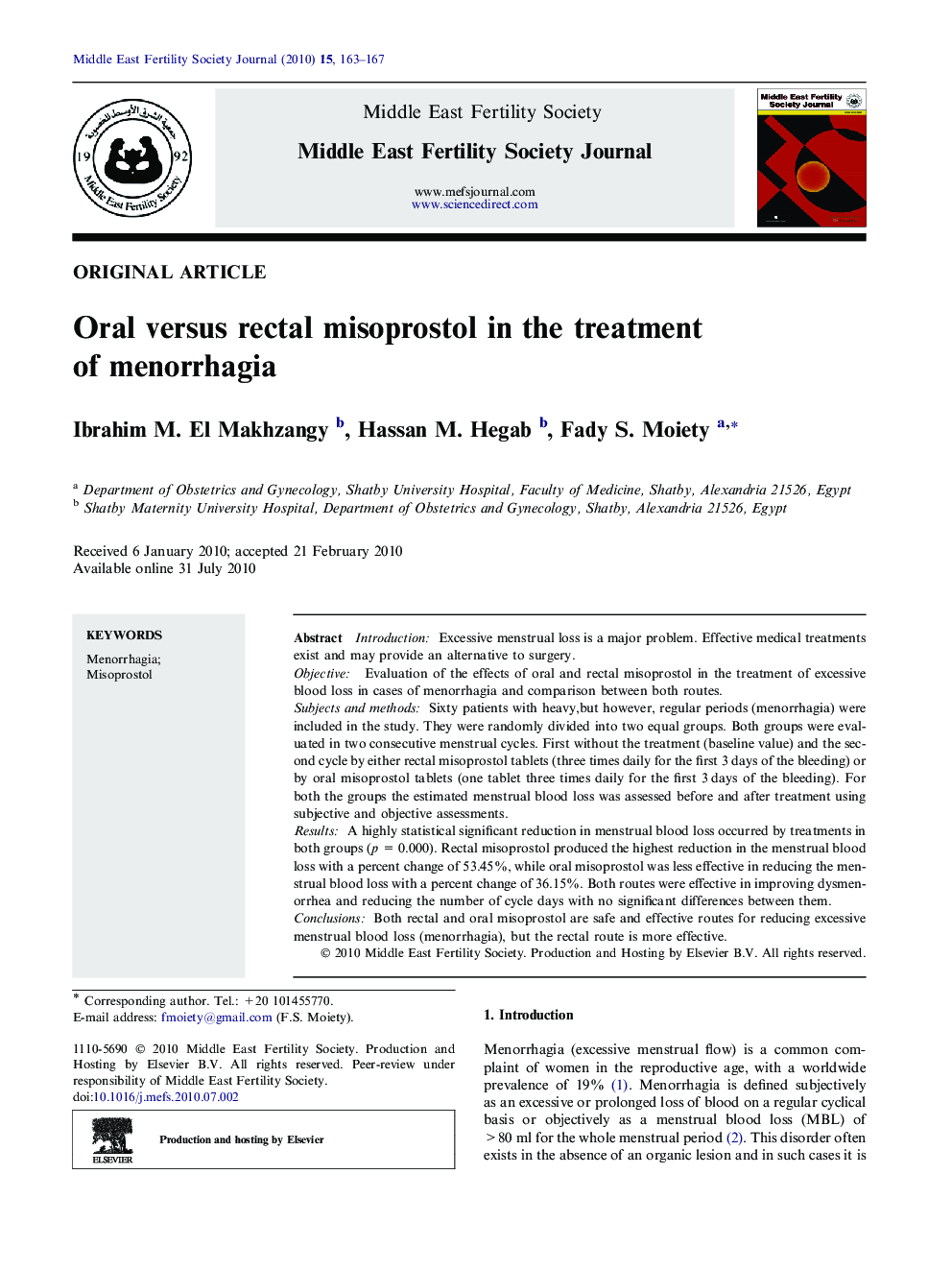| Article ID | Journal | Published Year | Pages | File Type |
|---|---|---|---|---|
| 3966415 | Middle East Fertility Society Journal | 2010 | 5 Pages |
IntroductionExcessive menstrual loss is a major problem. Effective medical treatments exist and may provide an alternative to surgery.ObjectiveEvaluation of the effects of oral and rectal misoprostol in the treatment of excessive blood loss in cases of menorrhagia and comparison between both routes.Subjects and methodsSixty patients with heavy, but however, regular periods (menorrhagia) were included in the study. They were randomly divided into two equal groups. Both groups were evaluated in two consecutive menstrual cycles. First without the treatment (baseline value) and the second cycle by either rectal misoprostol tablets (three times daily for the first 3days of the bleeding) or by oral misoprostol tablets (one tablet three times daily for the first 3days of the bleeding). For both the groups the estimated menstrual blood loss was assessed before and after treatment using subjective and objective assessments.ResultsA highly statistical significant reduction in menstrual blood loss occurred by treatments in both groups (p=0.000). Rectal misoprostol produced the highest reduction in the menstrual blood loss with a percent change of 53.45%, while oral misoprostol was less effective in reducing the menstrual blood loss with a percent change of 36.15%. Both routes were effective in improving dysmenorrhea and reducing the number of cycle days with no significant differences between them.ConclusionsBoth rectal and oral misoprostol are safe and effective routes for reducing excessive menstrual blood loss (menorrhagia), but the rectal route is more effective.
